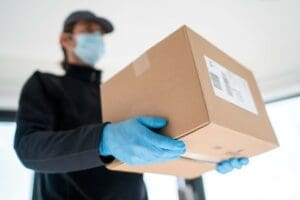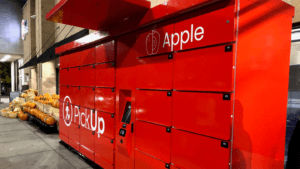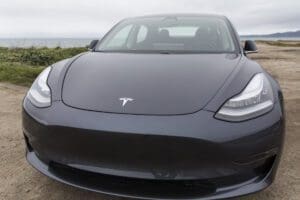 I may be in the minority here, but I’m just going to come out and say it. I do not like glitter. I dislike glitter so much that some of my friends have (jokingly) threatened to send me a glitter bomb package. I’m the only one in my family that feels so strongly about it. In fact, my daughters love it, and as a result, they always seem to end up with birthday, Valentine’s Day, and any other holiday cards that you can imagine covered in glitter. They see sparkles and fun; I see vacuuming. Lots of vacuuming. So, I have now become a big fan of major British retailers Morrisons, John Lewis and Waitrose, as all three companies have said they would not be using glitter in their holiday products this year. According to a statement by Morrisons, “glitter is made from tiny particles of plastic and is an ecological hazard if it becomes dispersed on land, rivers, and oceans, where it takes hundreds of years to degrade.” Maybe I can leverage the fact that glitter is actually bad for the environment to bring the rest of my family over to my side of the argument. Then I just have to convince the grandparents. And now on to this week’s logistics news.
I may be in the minority here, but I’m just going to come out and say it. I do not like glitter. I dislike glitter so much that some of my friends have (jokingly) threatened to send me a glitter bomb package. I’m the only one in my family that feels so strongly about it. In fact, my daughters love it, and as a result, they always seem to end up with birthday, Valentine’s Day, and any other holiday cards that you can imagine covered in glitter. They see sparkles and fun; I see vacuuming. Lots of vacuuming. So, I have now become a big fan of major British retailers Morrisons, John Lewis and Waitrose, as all three companies have said they would not be using glitter in their holiday products this year. According to a statement by Morrisons, “glitter is made from tiny particles of plastic and is an ecological hazard if it becomes dispersed on land, rivers, and oceans, where it takes hundreds of years to degrade.” Maybe I can leverage the fact that glitter is actually bad for the environment to bring the rest of my family over to my side of the argument. Then I just have to convince the grandparents. And now on to this week’s logistics news.
- Holiday crunch starts early with more packages than means to deliver
- Drone rules on final approach
- FedEx gets into returns with Happy Returns partnership
- CVS to hire thousands of pharmacy techs as it prepares for more COVID-19 cases
- Amazon launches one-hour grocery pickup at all U.S. Whole Foods stores
- Albertsons testing out self-service pick-up lockers
- Nordstrom expands online order pickup to Rack stores
- Tesla to export China-made Model 3 vehicles to Europe
- China adds new export restrictions in latest trade-dispute move
 Ahead of Black Friday and Cyber Monday, one important holiday item is apparently sold out: shipping capacity. I wrote about this challenge earlier this week as I explored the 2020 holiday season. A full five weeks before Thanksgiving, UPS and FedEx have already told most of their largest shippers that most of their shipping capacity has already been sold. The result could be up to 7 million packages delayed per day. That’s not exactly something that consumers want to hear. With this news, opportunities have opened for smaller carriers as retailers and shippers look to find additional capacity for what will surely be a busy season. Unfortunately, the majority of small shippers booked their capacity months earlier than usual and will not be accepting new customers until 2021. This leaves the USPS as the safety valve for these shippers. However, the Postal Service is already expecting a record number of letters and packages to be delivered, so it will be interesting to see if the agency can handle the additional demand. The best advice for consumers is to ship early this year.
Ahead of Black Friday and Cyber Monday, one important holiday item is apparently sold out: shipping capacity. I wrote about this challenge earlier this week as I explored the 2020 holiday season. A full five weeks before Thanksgiving, UPS and FedEx have already told most of their largest shippers that most of their shipping capacity has already been sold. The result could be up to 7 million packages delayed per day. That’s not exactly something that consumers want to hear. With this news, opportunities have opened for smaller carriers as retailers and shippers look to find additional capacity for what will surely be a busy season. Unfortunately, the majority of small shippers booked their capacity months earlier than usual and will not be accepting new customers until 2021. This leaves the USPS as the safety valve for these shippers. However, the Postal Service is already expecting a record number of letters and packages to be delivered, so it will be interesting to see if the agency can handle the additional demand. The best advice for consumers is to ship early this year.
 Drones have continued to demonstrate use cases as some regulations have been relaxed and more pilot programs have been approved. However, in order for drones to become a viable delivery mechanism for retailers, the Federal Aviation Administration (FAA) needs to pass final regulations laying out how drones can operate. We are now a step closer in the process. The FAA has submitted for final review two proposed regulations to the president’s Office of Management and Budget. These proposals are for remote identification of unmanned aircraft and operation of small unmanned aircraft over people. The White House budget office has 90 days to review the new regulations, meaning they could be published before the end of the year. If this happens, it will bring a close to a multi-year process for drone delivery regulations.
Drones have continued to demonstrate use cases as some regulations have been relaxed and more pilot programs have been approved. However, in order for drones to become a viable delivery mechanism for retailers, the Federal Aviation Administration (FAA) needs to pass final regulations laying out how drones can operate. We are now a step closer in the process. The FAA has submitted for final review two proposed regulations to the president’s Office of Management and Budget. These proposals are for remote identification of unmanned aircraft and operation of small unmanned aircraft over people. The White House budget office has 90 days to review the new regulations, meaning they could be published before the end of the year. If this happens, it will bring a close to a multi-year process for drone delivery regulations.
 FedEx is looking to expand its drop-off program for e-commerce returns heading into the holiday season, with the returns rush ready to kick off in January. FedEx is partnering with Happy Returns to accept items from 150 participating retailers at 2,000 FedEx Office locations. The partnership will begin at the end of October and offers instant refunds at drop off without the need for a box or packaging. Customers can initiate the return online and present a QR code on their smartphone when they bring the item to FedEx. The partnership is similar to what Staples us doing with Optoro, with an effort to increase sales of in-store services such as printing, copying, and shipping.
FedEx is looking to expand its drop-off program for e-commerce returns heading into the holiday season, with the returns rush ready to kick off in January. FedEx is partnering with Happy Returns to accept items from 150 participating retailers at 2,000 FedEx Office locations. The partnership will begin at the end of October and offers instant refunds at drop off without the need for a box or packaging. Customers can initiate the return online and present a QR code on their smartphone when they bring the item to FedEx. The partnership is similar to what Staples us doing with Optoro, with an effort to increase sales of in-store services such as printing, copying, and shipping.
 As we head into fall and winter, most people are anticipating a surge in COVID-19 cases. On top of that, there is also the seasonal flu, which tends to peak between December and February. CVS is looking to get ahead of a potential rise on COVID-19 and flu cases by hiring 15,000 new employees. More than 10,000 of those will be full-time and part-time licensed pharmacy technicians who can help dispense medications and administer Covid-19 tests. The expanded staff could also help to administer a COVID-19 vaccine when it is available, assuming federal officials allow pharmacy technicians to do so. This is the latest step in CVS’ staffing expansion during the coronavirus pandemic, as it has expanded its staffing and services during the pandemic, including rolling out more than 4,000 Covid-19 drive-thru testing sites. CVS expects to administer 18 million flu shots this year – a jump from the 11 million it administered last year.
As we head into fall and winter, most people are anticipating a surge in COVID-19 cases. On top of that, there is also the seasonal flu, which tends to peak between December and February. CVS is looking to get ahead of a potential rise on COVID-19 and flu cases by hiring 15,000 new employees. More than 10,000 of those will be full-time and part-time licensed pharmacy technicians who can help dispense medications and administer Covid-19 tests. The expanded staff could also help to administer a COVID-19 vaccine when it is available, assuming federal officials allow pharmacy technicians to do so. This is the latest step in CVS’ staffing expansion during the coronavirus pandemic, as it has expanded its staffing and services during the pandemic, including rolling out more than 4,000 Covid-19 drive-thru testing sites. CVS expects to administer 18 million flu shots this year – a jump from the 11 million it administered last year.
 During the coronavirus pandemic, as grocery shopping shifted online, many Whole Foods customers ran into the problem of not being able to find a delivery window for their order. As demand surged, Whole Foods had to stop accepting new customers for its delivery program. As restrictions have eased, online grocery shopping has continued to grow. Amazon is now making it faster and easier for Prime members to get their grocery shopping done by launching free, one-hour grocery pickup for Prime members at Whole Foods locations nationwide. To qualify for one-hour pickup, grocery orders must total $35 or more.
During the coronavirus pandemic, as grocery shopping shifted online, many Whole Foods customers ran into the problem of not being able to find a delivery window for their order. As demand surged, Whole Foods had to stop accepting new customers for its delivery program. As restrictions have eased, online grocery shopping has continued to grow. Amazon is now making it faster and easier for Prime members to get their grocery shopping done by launching free, one-hour grocery pickup for Prime members at Whole Foods locations nationwide. To qualify for one-hour pickup, grocery orders must total $35 or more.
 Albertsons is also expanding its e-commerce options by rolling out self-service pick-up lockers at select locations. The lockers, which are manufactured by Bell and Howell, will first be installed at select Jewel-Osco locations in the Chicago area and Safeway locations in the San Francisco Bay area. Grocery adds another level of complexity to self-service pick-up, so the lockers are temperature-controlled allowing all kinds of grocery items to be stored. Customers can shop online or through the store’s mobile app and request self-service pick-up at check-out. Customers will select a pick-up timeframe that works for them, and upon check-out, be given a unique code to open the appropriate locker. Albertsons hopes to roll the program out nationwide if all goes well.
Albertsons is also expanding its e-commerce options by rolling out self-service pick-up lockers at select locations. The lockers, which are manufactured by Bell and Howell, will first be installed at select Jewel-Osco locations in the Chicago area and Safeway locations in the San Francisco Bay area. Grocery adds another level of complexity to self-service pick-up, so the lockers are temperature-controlled allowing all kinds of grocery items to be stored. Customers can shop online or through the store’s mobile app and request self-service pick-up at check-out. Customers will select a pick-up timeframe that works for them, and upon check-out, be given a unique code to open the appropriate locker. Albertsons hopes to roll the program out nationwide if all goes well.
![]() E-commerce is going to be the big driver for the 2020 holiday season and retailers are doing everything they can to embrace the seismic shift. Beginning this month, Nordstrom will add online order pickup at US Nordstrom Rack stores for Nordstrom.com, NordstromRack.com, and HauteLook.com purchases. The retailer will also fulfill online orders from NordstromRack.com and HauteLook.com at nearby Nordstrom and Nordstrom Local locations later this year. The strategy is to give the customer as many fulfillment options as possible to make the shopping experience a easy as possible. Nordstrom is also hiring more than 20,000 seasonal workers to help keep up with demand and ensure proper staffing at all pick-up locations.
E-commerce is going to be the big driver for the 2020 holiday season and retailers are doing everything they can to embrace the seismic shift. Beginning this month, Nordstrom will add online order pickup at US Nordstrom Rack stores for Nordstrom.com, NordstromRack.com, and HauteLook.com purchases. The retailer will also fulfill online orders from NordstromRack.com and HauteLook.com at nearby Nordstrom and Nordstrom Local locations later this year. The strategy is to give the customer as many fulfillment options as possible to make the shopping experience a easy as possible. Nordstrom is also hiring more than 20,000 seasonal workers to help keep up with demand and ensure proper staffing at all pick-up locations.
 Tesla has said it will start exporting China-made Model 3 cars to more than 10 European countries this month. Tesla joins a growing number of auto manufacturers that have begun using China as an export hub for electric vehicles. The company has been expanding its Chinese operations over the last year with the launch of a Shanghai factory which is Tesla’s first car plant outside of the US. Tesla aims to build 150,000 vehicles this year alone in the Shanghai plant. As Tesla begins rolling out Model 3 cars to Europe, it is also building a factory on the outskirts of Berlin which will expand its European export plan.
Tesla has said it will start exporting China-made Model 3 cars to more than 10 European countries this month. Tesla joins a growing number of auto manufacturers that have begun using China as an export hub for electric vehicles. The company has been expanding its Chinese operations over the last year with the launch of a Shanghai factory which is Tesla’s first car plant outside of the US. Tesla aims to build 150,000 vehicles this year alone in the Shanghai plant. As Tesla begins rolling out Model 3 cars to Europe, it is also building a factory on the outskirts of Berlin which will expand its European export plan.
And finally, a new law will allow China to ban exports to protect national security, mirroring a US ban on exports. The law authorizes tight restrictions on the sale abroad of dual-use goods with both civilian and military applications, nuclear materials and equipment, and other products and services that touch on national security. The law has been in the works for two years and goes into effect on December 1. This is just the latest move in the testy trade dispute with the US and it will be interesting to see how the US responds.
That’s all for this week’s logistics news. Enjoy the weekend and the song of the week, Rock and Roll (Part 2) by Gary Glitter.

















